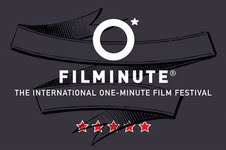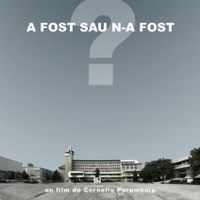Online film festival:a review
 [caption id="attachment_6348" align="alignright" width="226" caption="Filminute: online film festival"]
[caption id="attachment_6348" align="alignright" width="226" caption="Filminute: online film festival"]The 25 shortlisted films are subject to both a public vote on www.filminute.com, and a review by an international jury, consisting of luminaries from the film, arts, literature, and advertising fields. The Filminute jury is responsible for the selection of the Best Filminute and five Jury Commendations awards. The People’s Choice award is given to the film which garners the most online votes from members of the public.
The concept of Filminute lies in the idea that a movie should "resonate" with the audience, generating impact beyond one minute.
What do you need to make a one-minute movie?
First you have to have the idea and then the resources. Even if it lasts only one minute, you should have a screenplay. More importantly, you should already visualize the images that you want to have in your movie because everything must be short and powerfully created.
India, Japan and Malaysia are the only Asian countries that made the shortlist of the 2010 edition of Filminute.
Auto Madar (India) depicts a killer in a hurry to arrive at the designated point where he is expected to accomplish a task. Through clever editing, the rhythm and pace of the movie show chaos, pressure and fear. It is easy to imagine that this is a typical life of a common man living in a big city in India.
In Gone (India), the rhythm differs. The camera focuses on three young Indian characters: a magician, his assistant and the man from the audience who volunteers to participate in the magic show. Instead of the volunteer disappearing in the box, he succeeds in making the magician and the assistant vanish.
The other two movies from Asia are produced in Japan. In Love Suicide (Japan and Malaysia), a woman is hunted by her former lover. He leaves a note for her telling her that their child shouldn’t play the flute because it is too noisy. The other Japanese production, Shiver in the Evening Ocean Air, is about a woman who is buried in sand from neck down. She contemplates as she takes in the panorama of the Japanese seaside.
Impact on the audience
Audiences worldwide were very entertained by this year’s very global and varied collection. From dark and threatening visions of the world to comedy, there is truly something here for the cinema lover. The films are deeply expressed and are a reflection of our feelings in these uncertain economic times.
18 countries joined by film
This year, the films come from 18 countries including the Czech Republic, Finland, Hungary, Iceland, India, Japan, Malaysia, Netherlands, Portugal, Romania, Serbia, Slovak Republic, Slovenia, the UK and USA. Making their first contributions to the exclusive shortlist are Poland, South Africa and Turkey.
2010 Jury
This year’s jury consists of Neill Blomkamp (Academy Award-nominated director), Mark Tutssel (global chief creative officer for Leo Burnett Worldwide), Jan Lumholdt (Firpresci), Ronald Bergan (Guardian contributor and film critic) and Indian director and writer Tanuja Chandra. Filminute is thrilled to welcome Neill Blomkamp to the 2010 Filminute jury. Neill is the Canadian-based, South African director of “District 9,” the sensational, independent, feature film that garnered 7 BAFTA nominations and 4 Oscar nominations (including Best Picture). The film, which film critic Lev Grossman calls a “grimy little scare-fi thriller from South Africa” brilliantly explores themes of xenophobia and social segregation and is inspired by events that took place in Cape Town’s District 6 during the Apartheid era. The film was produced by independent film great Peter Jackson.
Watching Neill’s six-minute science fiction short film Alive in Joburg (released by Canada’s Spy Films in 2005) will be an inspiration to Filminute participants. The leap from the short film into the feature length “District 9” perfectly demonstrates the potential of a strong core story idea and how it may extend into a successful feature film with global appeal. We look forward to his judging and feedback on this year’s collection.
This year Filminute is very pleased to announce that Mark Tutsell, Global Chief Creative Officer for Leo Burnett Worldwide, will represent the marketing and advertising industry on this year’s festival jury. Mark is one of the most awarded creative directors ever with his work garnering every major creative award in the industry, including the International Advertising Festival’s Cannes Grand Prix, 40 Cannes Lions, and the first-ever D&AD Black Pencil in Digital. He divides his time between Chicago and London, overseeing the work of Leo Burnett’s 94 offices worldwide.
Mark has also chaired and served on the advertising industry’s most prestigious awards juries, including this past May’s Cannes Lions where he was the Worldwide President of the Cannes Lions jury for film and press. Commenting on his role at Cannes he said that in today’s ‘Screen Age’, ‘film’ in all its forms “has taken on new meaning and importance” for the advertising and creative industries. Filminute shares Mark’s enthusiasm for the wide array of new opportunities that the Screen Age offers ‘filmmakers,’ and looks forward to his thoughts on Filminute 2010.
Filminute is once again very pleased to announce our cooperation with FIPRESCI, the international federation of film critics. This year FIPRESCI will be represented by Jan Lumholdt, the Scandinavian film critic for the popular Swedish daily newspaper Svenska Dagbladet. Jan is also the author/editor of books on Lars von Trier, Harriet Andersson, and Per Fly.
FIPRESCI’s ongoing support of Filminute underscores the importance that the world’s leading film critics place on the impact of emerging technologies and media platforms on filmmaking today. Thank you FIPRESCI and welcome Jan!
Filminute is very excited to welcome film historian and critic Ronald Bergan to this year’s jury. In addition to his regular contributions to The Guardian, Bergan has also written over a dozen books on subjects ranging from Sergei Eisenstein, Jean Renoir & Francois Truffaut, to the Coen brothers. His Eyewitness Guide to Film (2006) has been published in 8 languages. He is also a frequent university and conference lecturer and has served on many of the major film festival juries around the world.
In 2009, Bergan’s Guardian article “One Hot Minute: How Long is a Piece of Film?” highlighted a growing sense among critics that films today often feel too long and that frequently it’s the result of director’s both forcing their films into a pre-established time frame as well as failing to engage audiences at the story level. The article praised Filminute’s collection of “technically impressive mini-movies” and the festival’s commitment and focus on ”story”. We couldn’t agree more! We are delighted to have Ronald Bergan join us on the Filminute 2010 jury.
Chandra began her career in television before moving on to write and/or direct seven feature films, including the 2008 film Hope & A Little Sugar which was her first English language film. She is one of a small number of successful women film directors in India.
According to the organizers, Indian filmmakers welcomed Filminute Festival right from the beginning. They submitted many volumes of films, leading to some very strong films which were eventually shortlisted, including Missing, the People’s Choice winner in 2007. India also represents a significant portion of the festival’s international audience.
The following is an interview with John Ketchum, co-founder and head of the jury of Filminute Festival:
FB: How do Asian films differ from European and American productions?
JK: We have four Asian films this year - two from India, one from Japan, and a Japanese-Malaysian co-production. These films, among the 25 from the shortlist, were selected from films submitted from 65 countries.
What stands out in the Japanese and Japanese-Malaysian films is the pacing of the narratives. The stories are patient. The directors unfold their stories at an unhurried pace. What they both have in common is a wry and dark sense of humour. The Indian films could not be more different from each other, although they both deliver with a sense of humour — one playful, one dark.
How Asian films differ from European and American films at Filminute is difficult to answer generally. What I can say is that for the past three years of the festival, submissions from India have increased to the point where this year, more films were submitted from India than any other country.
At the end of the day, the best one-minute films affect us the same way any great film would. We have had Indian films that have made the exclusive 25-film shortlist, stories that resonate with universal themes and that are supported by high levels of production quality – strong scripts, camera work, editing, sound design etc. Indian films like this year’s Gone or last year’s Silences are good examples of this. And yet, it’s also very exciting when those universally accessible themes and high production value get married to the raw energy and action that Indian filmmakers seem to have in abundance. Films like this year’s Auto Madar and the 2008 Jury Commended film Rahim Murge Pe Mat Ro are great examples of this.
Also worth mentioning is the People’s Choice winner at Filminute 2007, Missing, which also received kudos from the jury. That was the film that started the wave of interest in Filminute in India.
Japanese cinema has a very accomplished and unique history and though we receive far less films from Japan than we do from India, the ones we do receive tend to reflect thoughtfulness and discipline. They also seem to have more respect for the power of silence in film. This year’s Japanese-Malaysian film Love Suicides: Prologue, is a very good example of this. So much is delivered through the body language of the mother and the silence of the surrounding countryside. The Japanese film Shiver in the Evening Ocean Air, also plays on the silence and manages to deliver a chilling ending that hearkens back to some of the feature length yakuza films many of us have seen.
What’s also interesting to note, is that we are increasingly seeing filmmakers experimenting with styles of films from other regions. For example, this year we had a number of very interesting film submissions from South America that had strong Asian sensibilities. Filmmakers have always borrowed from other cultures but it would seem that the internet and initiatives like Filminute may be accelerating this.
Looking forward, we would love to see more films from Korea, China and Thailand which all have had co-productions in Filminute and strong film cultures. At the same time, we’d be thrilled to see films from other countries in the region. It’s all possible!
FB: The Filminute Festival links various directors’ perspectives from around the world. What were some of the feedback from the other members of the jury regarding the Asian participants in Filminute in the current edition or in the previous ones?
JK: At Filminute we consider our annual 7-member international jury to be one of the most relevant and dynamic film juries in the world. It’s very important that we draw luminaries from the fields of film and film criticism, but also literature, advertising and popular culture. Asia has been well represented on the film jury by the likes of Tham Khai Meng (Worldwide Creative Director for Ogilvy & Mather), Tokyo’s Mori Art Museum, & by this year’s juror, popular Indian filmmaker Tanuja Chandra. Between them and our other jurors I would say there is a recognition of the extreme breadth of filmmaking cultures in Asia but also an appreciation amongst Asian film directors for the subtler aspects of filmmaking – the silences, the use of body language, more contemplative sound design, and cultural reference points.
FB: What has been the impact of the festival online?
JK: In 2009, Filminute audiences watched more than 3 million minutes across multiple media platforms. This year, we did not focus on any television presentations, which would normally drive large numbers but don’t necessarily translate to the same depth of engagement in the festival online.
This year we had audiences from a record 124 countries. We also dedicated our focus on social media. Facebook and Twitter were the platforms we worked with most. We have not analyzed the data fully but we do know this: Facebook drove 30% of our audiences, both directly and indirectly to our website. This is remarkable and this referral of the content between friends and peers is, as we are learning, more powerful than advertising. While Twitter did not have the same impact in volume as Facebook, we saw Twitter users spend on average 8 minutes on our site in contrast to Facebook audiences spending 5 minutes. We have some hypotheses that we are exploring. One being that our Twitter audience is made up of a high percentage of filmmakers, writers, and creative producers and their opinions and influence is delivered with greater authority. Facebook audiences dive in because of the high entertainment value. That’s what we have a sense of so far.
Looking ahead towards 2011, we know that more than 25 companies are planning to launch their own version of the iPad so we expect the iPad and the mobile phone to be a very big part of our 2011 festival. We encourage your readers to follow Filminute on Facebook as we will be delivering updates through it regularly during the coming year.
And the winners of 2010 Filminute are…
Best Filminute
- Choose Not to Fall (UK)
People’s Choice
- A New Prayer (Romania)
Top Rated
- Dark Valley (Iceland)
JURY COMMENDATIONS
- Auto Madar (India)
- Goodbye Mr. Nice Guy (Romania)
- Gumboots (South Africa)
- Love Suicides (Malaysia / Japan)
- Flesh (Netherlands)
Further resources:
- www.filminute.com
Other one minute film festivals in the world:
http://www.theoneminutes.org/
http://www.minutefilmfest.com/2010/backstory.html
http://www.newyorkminutefilmfestival.com/


